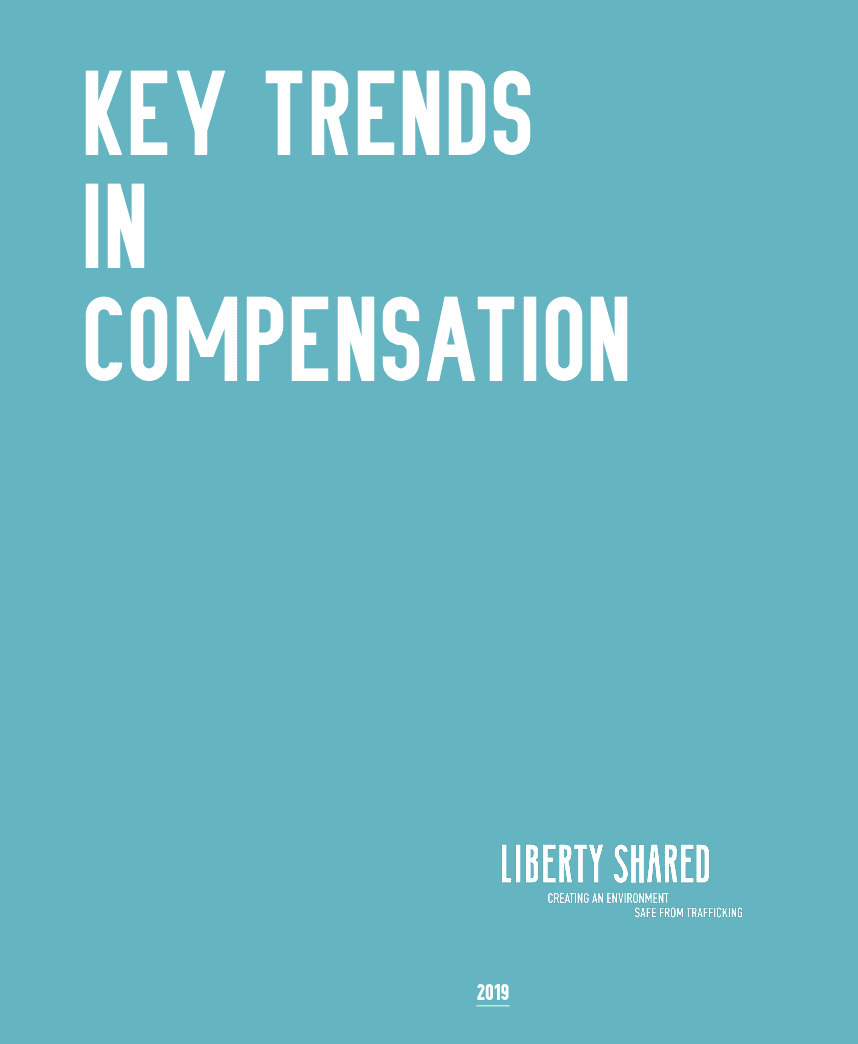
Key Trends in Compensation
This report summarises the findings of research into compensation practices for victims of human trafficking in various jurisdictions and offers recommendations for improvement.
Remedies are an important part in the process of recovery and successful rehabilitation/reintegration of victims of human trafficking. In particular, compensation or some form of financial redress for the economic losses suffered by victims as well as the physical and mental harm they have suffered allows victims to re-establish control over their own lives and gives them a sense of financial security. Another extremely important function of compensation is that it gives victims a sense of closure and the feeling that justice has finally been served1 .
From an offender perspective, strict enforcement of offenders’ liability to pay compensation to their victims acts as a form of accountability for the crime committed. It acts as a potential deterrent against further trafficking crimes by punishing offenders and demonstrating that there are financial consequences attached to trafficking2 .
As demonstrated by this research, the process of seeking compensation is an arduous and complex one in many jurisdictions. An award of compensation, usually perceived as a successful end point in prosecutions, is in fact only the first step in the bureaucratic, laborious and costly processes of asset identification and enforcement. In many jurisdictions (especially in cases where the victim is a nonnative speaker) this necessitates the victim having legal assistance in order to navigate the system and file the many notices, motions and applications which are necessary to seize and realise the offender’s assets in order to access compensation. Unless victims have access to easy and effective methods of enforcement any financial remedies ordered in court are effectively rendered meaningless.
Care needs to be taken to ensure that human trafficking does not come to be viewed as a crime against the State in which the victims are viewed as witnesses rather than victims. It is therefore imperative that victim protection rights are enshrined in law, protected and applied consistently. In the context of compensation this involves:
- reviewing whether existing systems facilitate victims’ ability to claim compensation through multiple means including, if not already in existence, a state-funded compensation scheme designed to cover victims of human trafficking and whose aims are to deliver timely payments of awards;
- the right of access to information;
- the right to free legal representation extending throughout the course of the victim’s engagement with the justice system (both criminal and civil and extending to the enforcement process);
- non-criminalisation of victims (especially in respect of irregular immigration status and crimes committed as a result of the trafficking situation) and, if not already in place, the introduction of vacatur laws to expunge related existing convictions; and
- the right to remain throughout the duration of any action in relation to a trafficking offence (not limited only to the duration of a criminal trial of any alleged offender but extending to any civil action initiated by the victim and the process for enforcement of any award).
Read more here.
